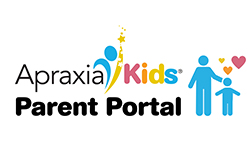Talking is hard, and speech therapy can be exhausting for our apraxia stars. During therapy sessions, children are working on learning new motor plans and practicing them at high rates so they become automatic. Apraxia stars work so hard during therapy that parents often report that their child falls asleep on the way home from sessions.
When appropriate therapy begins, children usually see immediate changes and that is very powerful and motivating! Progress can be slow, but as their speech improves, they are rewarded with being able to communicate with those around them. However, parents wonder what to do when the motivation wanes. Maybe their child hits a plateau and progress is not as rapid. Or maybe their child sees their friends doing fun after-school activities such as dance, gymnastics, music lessons, baseball, soccer, or other such endeavors, and they feel left out because they have to go to speech therapy. The parental fear is that without constant, intensive therapy, skills will be lost. However, when a child is not motivated to participate in therapy, much time is wasted in trying to get cooperation and the sessions are not as productive.
Sometimes, having a break in therapy can be beneficial. Maybe take the summer off from therapy, or reduce the frequency of sessions during baseball season. Children can also benefit from participating in other activities where planning motor movements are worked on such as sequencing dance moves, ball skills (catching, throwing, kicking, and batting), or playing a musical instrument. The psychosocial benefits from these type of fun activities are far reaching, as well – gaining confidence, making friends with common interests, and reduction of stress/anxiety.
Listen to your child about why they are not wanting to go to therapy to understand their perspective. Then talk to your child’s therapist about the pros and cons for your child taking a break from therapy. Engage your child in these conversations as appropriate. Discuss the importance of continuing speech therapy, and what you and your child’s goals are for therapy. If they have a say in what they are doing, it helps them feel they have some control and they will be more engaged. After a break, children may have renewed energy and motivation for doing the hard work to find their voice!
